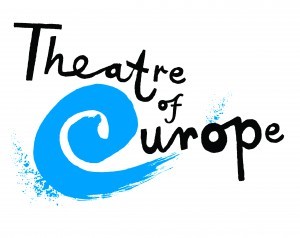European Theatre Research Network (ETRN) & Theatre of Europe
AHRC Collaborative Doctoral Award
European Theatre(s) –
Crossing Borders, Negotiating Boundaries, Circulating Legacies
Building collaborations and facilitating exchange between the non-English Continental European theatre world and British theatre is the central mission of both Theatre of Europe and the European Theatre Research Network (ETRN), a research centre based in the School of Arts at the University of Kent. Theatre of Europe is a non-venue based theatre, supported by the European Commission and E.U.N.I.C. (European National Institutes of Culture). It commissions leading Continental European theatre artists to restage some of their seminal non-English theatre productions in the UK, or to create new work, for British audiences, working with British theatre artists (see http://theatreofeurope.org.uk). We are very pleased to invite applications for an AHRC-funded collaborative doctoral studentship commencing on 1st October 2015, with both these partners.
At the heart of this PhD project will be the student’s opportunity to engage and interact with Theatre of Europe’s various ongoing projects. This includes observing, documenting, analysing and participating in Research & Development-work, rehearsals and productions, and outreach and public engagement activities. Applicants are invited to define their own research project according to their interests and competencies (especially their language skills) in response to the following framework of enquiry.
We are looking for research-based PhD project proposals which address the following research questions:
- What are the existing artistic, aesthetic, and pragmatic problems and barriers in encounters and practical collaboration between theatre artists from the UK and from Continental European countries?
- How can the successful translation of existing non-English European theatre work for British audiences be achieved? What steps must be taken to make these productions accessible for UK spectators with their distinct viewing habits, whilst maintaining the artistic vision and integrity of the original artistic work?
- What are the central differences in ways of working, the skillsets, and the competencies between UK- and Continental theatre artists?
- What new aesthetic, artistic and practical opportunities emerge through the cultural encounter between Continental European and British theatre artists and cultures, in particular regarding aspects of dramaturgy and mise en scène?
The doctoral student will be supervised, depending on the topic of their project, by relevant experts within the European Theatre Research Network (www.europeantheatre.org.uk), as well as working closely with the centre co-directors Paul Allain, Patrice Pavis, and Peter M Boenisch. At Theatre of Europe, the student will be supervised and mentored by Artistic Director Henriette Morrison. The PhD student will thereby become a vital part of the ongoing collaboration between Theatre of Europe and ETRN, formalised in a partnership agreement in 2014. The scholarship thus offers the student an opportunity to undertake an academic research project, while also gaining professional skills and competencies working with a theatre company.
It is expected that the successful project’s main methodological approach will be centred around primary research, observation, documentation, interviews, and the comparative analysis between a set of case studies, within and beyond Theatre of Europe’s projects. Depending on the nature of the project, the student and the supervisors will select ongoing Theatre of Europe work with which the research will engage in greater depth. The student will, where suitable for their project, also introduce further comparative dimensions, for instance through additional case studies or historiographic research. It is therefore expected that the successful project will bring the student in a comparative contact with two (or more) different European theatre contexts, aesthetics and ways of working. Research opportunities in Europe will be enabled through additional financial support provided by Theatre of Europe, complemented by ETRN- and University funding.
How to Apply
Funded by the Arts and Humanities Research Council of England, the AHRC’s criteria for eligibility apply (see RCUK Terms and Conditions, TGC6, esp. paragraphs 39-51, see http://www.rcuk.ac.uk/RCUK-prod/assets/documents/documents/
TermsConditionsTrainingGrants.pdf). For eligible candidates, the three year award covers fees and an annual maintenance grant.
Applications are accepted via the University of Kent’s online application system (http://www.kent.ac.uk/courses/postgraduate/351/drama-by-thesis-practice). The ETRN/ Theatre of Europe Collaborative scholarship should be referenced in the Research Proposal Heading.
As part of the application process, candidates will need to submit, in addition to their proposal, a 500 word statement outlining their suitability for this collaborative scholarship, as well as declaring their eligibility status in accordance with the AHRC’s criteria. Candidates are advised to refer to the School of Arts guidelines for writing a successful research proposal, available at www.kent.ac.uk/arts/pg/Research-Applications-2015-16.pdf.
Applicants who have previously applied for other scholarship opportunities or PhD projects at the University of Kent will not be automatically considered for this CDA grant. It is not possible to transfer into this scholarship if you have already commenced your PhD study. Also note that practice-based projects cannot be considered for this scholarship.
Closing date is Wednesday 15 April 2015.
Interviews with shortlisted candidates will be held
in Canterbury on Monday 11 May 2015.
For further information, please contact arts-pgadmin@kent.ac.uk.



